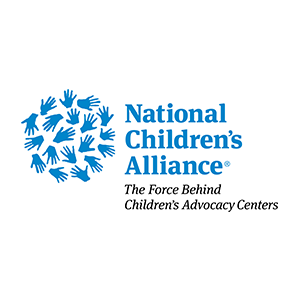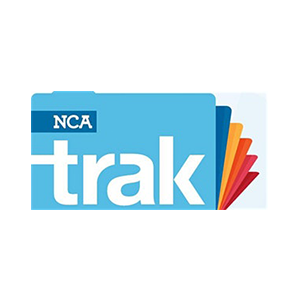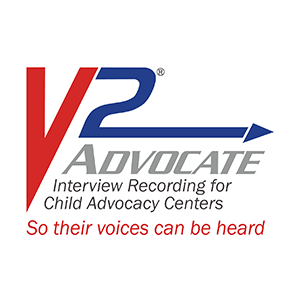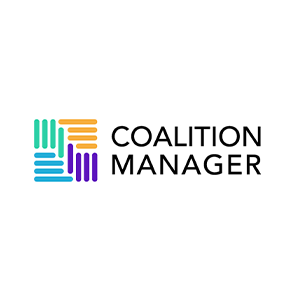
Accessing Workshops & Live Sessions
Please note, all workshop recordings will be released June 7th at 9am Eastern. The agenda below is a suggested schedule for attendees. All live sessions will take place June 7-9. Each live session will be recorded and available on-demand until September 30, 2021.
CLICK HERE to print a schedule
Monday, June 7, 2021
10:00 am - 10:30 am EDT
Welcome to the 2021 Leadership Conference with Teresa Huizar, NCA Executive Director
Overview
Join a live welcome session to NCA 2021 Virtual Leadership Conference with Teresa Huizar, NCA Executive Director.
Speaker(s)
Teresa Huizar, Executive Director, National Children's Alliance
10:30 am - 11:30 am EDT
Concurrent Session One
Concurrent Sessions 1A-1J
Track: Rural
Session 1A: Reaching the Unreachable: Closing the Gap for Rural Kids through Networks and Tech
Overview
Track: Rural
Families residing in rural and frontier communities and on tribal lands face multiple challenges in accessing high-quality, evidence-based mental health services. Developing creative solutions to complex barriers can support positive outcomes for children and their families affected by trauma. Participants in this session will learn how to create a network of trained mental health professionals utilizing telemental health to meet the unique challenges remote communities face in accessing care
Speaker(s)
Brenda George, Executive Director, Children's Alliance of Montana
Charles Wilson, , Western Regional Children's Advocacy Center
Paula Reed, Executive Director, Children's Advocacy Centers of Washington
Track: Research & Innovative Practices
Session 1B: Teamwork in Multidisciplinary Teams: Why It Matters and How to Improve It
Overview
Track: Research & Innovative Practices
This presentation will begin with a review of research on multidisciplinary team functioning and outcomes in Children's Advocacy Centers. Next, we will describe the process of adapting an evidence-based team training intervention for use with CAC multidisciplinary teams. We will provide an overview of the adapted intervention and present pilot data on feasibility, acceptability, appropriateness, and fidelity. We will close by discussing how teamwork affects CACs’ capacity to implement new practices.
Speaker(s)
Elizabeth Ann (Miller) McGuier, PhD, Assistant Professor of Psychiatry, University of Pittsburgh School of Medicine
Mikele Bay, Executive Director, Children's Advocacy Center of McKean County
David J. Kolko, PhD, Professor of Psychiatry, Psychology, Pediatrics, and Clinical and Translational Science, University of Pittsburgh School of Medicine
Track: Chapter
Session 1C: Program Evaluation of a Statewide Child Advocacy Studies Training (CAST) Initiative
Overview
Track: Chapter
In response to a national deficit in education about child abuse and neglect, Children’s Advocacy Centers of Mississippi introduced a paradigm shift by creating the first statewide program to implement Child Advocacy Studies Training (CAST) in multiple colleges and universities throughout the state. The presentation will introduce the CAST program and present findings on a study of its implementation (including CAST schools’ partnerships with CACs) and an assessment of student outcomes.
Speaker(s)
Karla Steckler Tye, Executive Director of the Children’s Advocacy Centers of Mississippi, Children’s Advocacy Centers of Mississippi
Theodore Cross, Senior Research Professor, University of Illinois at Urbana-Champaign
Yu-Ling Chiu, Research Specialist, University of Illinois at Urbana-Champaign
Track: Research & Innovative Practices
Session 1D: Shielding Our Students: Creating Policies to Protect Children from Abuse
Overview
Track: Research & Innovative Practices
The Shield of Protection Workshop is designed to guide schools and youth-serving organizations in understanding grooming in organizations and how to prevent institutional abuse. Leadership teams will then identify the areas of strength and weakness in their child protection efforts across three areas: 1) organizational policies and processes related to background checks, child pick-up, and staffing; 2) staff, volunteer, and parent training and resources; and 3) youth programming and education. By the end of this workshop, participants will discuss the essential components of a child protection policy and create an action plan for moving forward to improve the safety of the children they serve.
Speaker(s)
Patricia Dailey Lewis, Esq., Executive Director, Beau Biden Foundation for the Protection of Children
Track: Business of Child Advocacy
Session 1E: Communicating about Adverse Childhood Experiences to Cultivate Policy Support Avoiding Stigma and Blame
Overview
Track: Advocacy & communications
This presentation will focus on the results from a series of public opinion surveys and communications experiments which seek to improves how evidence about adverse childhood experiences is communicated to the public and policymakers.
Speaker(s)
Jonathan Purtle, Associate Professor, Drexel University Dornsife School of Public Health
Track: Advocacy & Communications
Session 1F: Philadelphia Juvenile Anti-Trafficking Coalition Year 1: Lessons, Accomplishments & Youth Voice
Overview
Track: Advocacy & Communications - Learn about child trafficking through the lens of an anti-trafficking collaborative with special attention to the commercial sexual exploitation of children (CSEC), strategies for cross-system collaboration, and projected next steps. Attendees will study the coalition's accomplishments and strategies including enhanced accessibility of specialized services and referrals for CSEC, addressing the needs of immigrant and refugee youth, executed community and professional trainings to raise awareness of trafficking and empower communities to prevent it, and Former Youth Survivor Advisory Board.
Speaker(s)
Alea Cummings, CVHT Program Coordinator + Lead Therapist, Philadelphia Children's Alliance
Kelly Sagastume, Program Manager of Project PROTECT and Child Advocate Social Worker, Support Center for Child Advocates
Track: Advocacy & Communications
Session 1G: What We Wish You Knew: A Mother Daughter Experience in Prevention
Overview
Track: Advocacy & Communications
Opening Keynote Workshop: The impact of child sexual abuse is devastating for survivors, but also affects those close to them. In this workshop, survivor Jenna Quinn of Jenna’s Law and her mother, Kellie Quinn, will share their experience together. Learn from Jenna’s experience as a student and Kellie’s experience as a professional educator and parent. This workshop provides the survivor, parent, and educator perspective on the importance of primary prevention, the steps to grooming, and organizational policy and training in the education system. Attendees will view clips from the “It’s Not Just Jenna” Documentary, where participants will view the family perspective on grooming and meet the perpetrator. The “It’s Not Just Jenna” Documentary is shown to groups all across the U.S in English and Spanish for educational purposes. A combination of video, research, and personal testimony will be utilized to illustrate the stages of grooming and how prevention policies and program implementation can be effective in prevention and intervention.
Learning Objectives:
Objective 1: Participants will have an understanding of the prevalence of child sexual abuse, grooming methods, and how to recognize the warning signs in child victims, as well as how to respond and report responsibly.
Objective 2: Participants will learn the types of situations in which child sexual abuse may occur, as well as simple effective strategies for protecting children.
Objective 3: Participants will understand how to talk to their own children about abuse and explore prevention programs they can take to their schools, workplace, organization or child-serving agency.
Speaker(s)
Jenna Quinn, M.S, Opening Keynote, “The Jenna Quinn Law”
Track: Business of Child Advocacy
Session 1H: Bias in the Investigative Process of Child Abuse Cases
Overview
Track: The Business of Child Advocacy
All forms of bias may be present at all stages of child abuse investigations. This workshop will explore explicit, implicit, and confirmation biases and the impact these biases have on the investigative process. The workshop is intended for Children's Advocacy Centers and members of the multidisciplinary team including law enforcement, child protection, prosecution, and forensic interviewers that investigate child abuse cases.
Speaker(s)
Michele Greenburg, Forensic Interviewer/Trainer, Independent Contractor
Renee Roman, Consultant, Independent Contractor
Track: Research & Innovative Practices
Session 1I: Children with Problematic Sexual Behavior: Recommendations for the MDT and CAC Response
Overview
Track: Research & Innovative Practices
Cases of children ages 12 and younger with problematic sexual behavior (PSB) can present a myriad of challenges for multidisciplinary teams (MDTs) and Children’s Advocacy Centers (CACs). Fortunately, the MDT approach and the CAC model are ideal vehicles for development and implementation of an integrated and comprehensive systems approach to cases of children with PSB, recipient children, and their families. This course will provide expert peer reviewed recommendations designed to guide and support MDTs and CACs to enhance current practices, improve professional response, and promote positive outcomes for children with PSB, children impacted by the PSB, and their families.
Speaker(s)
Jerri Sites, Consultant, Child Protection Concepts, LLC
Jimmy Widdifield, Jr., LPC, Project Director, National Children’s Advocacy Center
Track: Research & Innovative Practices
Session 1J: Addressing Caregiver Trauma: Implementing CPT in CACs
Overview
Track: Research & Innovative Practices
Caregivers play an essential role in helping children and teenagers recover from traumatic events. Most caregivers are able to support their children and actively participate in their child’s treatment; however, some need their own services due to their trauma history and untreated PTSD. This presentation will discuss research on caregiver traumatic stress and present the promises and challenges of implementing CPT individual and group therapy in CACs.
Speaker(s)
Anna Schimmelpfennig, PhD, Assistant Mental Health Director, Red River Children's Advocacy Center
Nicola Herting, PhD, Mental Health Strategic Director, Red River Children's Advocacy Center
11:45 am - 12:30 pm EDT
Session One LIVE Q&As
Concurrent Session One LIVE Q&As. Five 45 minute live Q&A sessions are scheduled for this time. Each live session will be recorded and available on-demand until September 30, 2021.
LIVE Q&A - Session 1A: Reaching the Unreachable: Closing the Gap for Rural Kids through Networks and Tech
Overview
Track: Rural
Families residing in rural and frontier communities and on tribal lands face multiple challenges in accessing high-quality, evidence-based mental health services. Developing creative solutions to complex barriers can support positive outcomes for children and their families affected by trauma. Participants in this session will learn how to create a network of trained mental health professionals utilizing telemental health to meet the unique challenges remote communities face in accessing care
Speaker(s)
Brenda George, Executive Director, Children's Alliance of Montana
Charles Wilson, , Western Regional Children's Advocacy Center
Paula Reed, Executive Director, Children's Advocacy Centers of Washington
LIVE Q&A - Session 1B: Teamwork in Multidisciplinary Teams: Why It Matters and How to Improve It
Overview
Track: Research & Innovative Practices
This presentation will begin with a review of research on multidisciplinary team functioning and outcomes in Children's Advocacy Centers. Next, we will describe the process of adapting an evidence-based team training intervention for use with CAC multidisciplinary teams. We will provide an overview of the adapted intervention and present pilot data on feasibility, acceptability, appropriateness, and fidelity. We will close by discussing how teamwork affects CACs’ capacity to implement new practices.
Speaker(s)
Elizabeth Ann (Miller) McGuier, PhD, Assistant Professor of Psychiatry, University of Pittsburgh School of Medicine
Mikele Bay, Executive Director, Children's Advocacy Center of McKean County
David J. Kolko, PhD, Professor of Psychiatry, Psychology, Pediatrics, and Clinical and Translational Science, University of Pittsburgh School of Medicine
LIVE Q&A - Session 1C: Program Evaluation of a Statewide Child Advocacy Studies Training (CAST) Initiative
Overview
Track: Chapter
In response to a national deficit in education about child abuse and neglect, Children’s Advocacy Centers of Mississippi introduced a paradigm shift by creating the first statewide program to implement Child Advocacy Studies Training (CAST) in multiple colleges and universities throughout the state. The presentation will introduce the CAST program and present findings on a study of its implementation (including CAST schools’ partnerships with CACs) and an assessment of student outcomes.
Speaker(s)
Karla Steckler Tye, Executive Director of the Children’s Advocacy Centers of Mississippi, Children’s Advocacy Centers of Mississippi
Theodore Cross, Senior Research Professor, University of Illinois at Urbana-Champaign
Yu-Ling Chiu, Research Specialist, University of Illinois at Urbana-Champaign
LIVE Q&A - Session 1F: Philadelphia Juvenile Anti-Trafficking Coalition Year 1: Lessons, Accomplishments & Youth Voice
Overview
Track: Advocacy & Communications - Learn about child trafficking through the lens of an anti-trafficking collaborative with special attention to the commercial sexual exploitation of children (CSEC), strategies for cross-system collaboration, and projected next steps. Attendees will study the coalition's accomplishments and strategies including enhanced accessibility of specialized services and referrals for CSEC, addressing the needs of immigrant and refugee youth, executed community and professional trainings to raise awareness of trafficking and empower communities to prevent it, and Former Youth Survivor Advisory Board.
Speaker(s)
Alea Cummings, CVHT Program Coordinator + Lead Therapist, Philadelphia Children's Alliance
Kelly Sagastume, Program Manager of Project PROTECT and Child Advocate Social Worker, Support Center for Child Advocates
LIVE Q&A - Session 1H: Bias in the Investigative Process of Child Abuse Cases
Overview
Track: The Business of Child Advocacy
All forms of bias may be present at all stages of child abuse investigations. This workshop will explore explicit, implicit, and confirmation biases and the impact these biases have on the investigative process. The workshop is intended for Children's Advocacy Centers and members of the multidisciplinary team including law enforcement, child protection, prosecution, and forensic interviewers that investigate child abuse cases.
Speaker(s)
Michele Greenburg, Forensic Interviewer/Trainer, Independent Contractor
Renee Roman, Consultant, Independent Contractor
12:!5 pm - 1:30 pm EDT
Lunch Break & Visit Town Square
1:30 pm - 2:30 pm EDT
Opening Keynote - How We Shine: Stories of Post Traumatic Growth
Overview
Measuring the outcome of healing in survivors can be difficult and communicating how survivors heal can be even more so. As the namesake of both state and federal legislation, Jenna Quinn of Jenna’s Law, will share her gripping story of surviving child sexual abuse and how her local Children’s Advocacy Center cultivated justice and healing for her and her family. Refreshingly transparent, Jenna guides you through her miraculous experience, as she shares the ups and downs of maintaining hope, healing, and advocacy through Post Traumatic Growth. Having worked with countless survivors and advocacy centers all across the country, Jenna details the many ways survivors heal and shine in the face of abuse.
Opening Plenary Sponsored By VidaNyx

Speaker(s)
Jenna Quinn, M.S, Opening Keynote, “The Jenna Quinn Law”
2:45 pm - 3:30 pm EDT
Live Q&A Session - Opening Keynote - How We Shine: Stories of Post Traumatic Growth
Overview
Measuring the outcome of healing in survivors can be difficult and communicating how survivors heal can be even more so. As the namesake of both state and federal legislation, Jenna Quinn of Jenna’s Law, will share her gripping story of surviving child sexual abuse and how her local Children’s Advocacy Center cultivated justice and healing for her and her family. Refreshingly transparent, Jenna guides you through her miraculous experience, as she shares the ups and downs of maintaining hope, healing, and advocacy through Post Traumatic Growth. Having worked with countless survivors and advocacy centers all across the country, Jenna details the many ways survivors heal and shine in the face of abuse.
Opening Plenary Sponsored By VidaNyx

Speaker(s)
Jenna Quinn, M.S, Opening Keynote, “The Jenna Quinn Law”
3:30 pm - 4:30 pm EDT
Concurrent Session Two
Concurrent Session 2A-2J
Track: Rural
Session 2A: Improving Service Delivery by Building Relationships with Indigenous Communities
Overview
Track: Rural
Indigenous communities represent a major gap for CAC coverage, yet many CACs are already serving Native American and Alaska Native youth and families, providing a road map for all. This session will focus on initiating and strengthening relationships with key stakeholders from these communities and build upon existing work. Highlighting examples from interviews with CACs will provide realistic strategies for others to replicate. We will also discuss principles that will lay the foundation for future collaboration.
Speaker(s)
Lisa Stark, Training and Technical Assistance Specialist, National Native Children's Trauma Center
Maegan Rides at the Door, PhD, LCPC, Director and Principal Investigator, National Native Children’s Trauma Center
Mari Mukai, Chapter Coordinator, Alaska Children's Alliance
Pam Karalunas, Child Advocacy Center Consultant, Karalunas Consulting
Track: Research & Innovative Practices
Session 2B: Amplifying the Voices of Youth through the Outcome Measurement System (OMS)
Overview
Track: Research & Innovative Practices
One of the hallmarks of the CAC model is providing children with the opportunity to be heard; to raise their voices about what they have endured and to speak to what they will need to heal. By using nationally standardized approaches, voices of children can be amplified to inform CAC, community, state, regional, and national practices. This workshop will demonstrate how guiding principles, research expertise and knowledge contributed from CAC staff and leadership intersected to create and launch the OMS Youth Feedback Survey. Lessons learned from survey development and implementation will be shared, including how to overcome barriers and use results to improve the quality of programs for children, families, and communities.
Speaker(s)
Elizabeth M. Cross, PhD, CEO, Cross Associates Research & Evaluation Services
Kaitlin Lounsbury, MA, Program Evaluation Coordinator, National Children's Alliance
Theodore P. Cross, PhD, Senior Research Specialist, Children and Family Research Center, University of Illinois at Urbana–Champaign
Wendy A. Walsh, PhD, Research Associate Professor, Crimes against Children Research Center, University of New Hampshire
Track: Research & Innovative Practices
Session 2C: Empowering Caregivers to Help Children Manage Anger and Aggression
Overview
Track: Research & Innovative Practices
Alternatives for Families: a Cognitive Behavioral Therapy (AF-CBT) is a trauma-informed, EBP designed to improve relationships between children and caregivers in families with a history or risk for child physical abuse. Therapy strengthens parenting, communication, anger control, and problem solving in a variety of settings. Caregivers and therapists work together to build on caregiver strengths and goals, including managing stress and being intentional about positive, safe parenting.
Speaker(s)
Barbara Baumann, Assistant Professor, University of Pittsburgh School of Medicine
Track: Research & Innovative Practices
Session 2D: Transgenerational Trauma and Child Abuse
Overview
Track: Research & Innovative Practices
Trauma passes from one generation to the next through genetics and experiences, and can result in neurological and physiological changes. In child abuse cases, these changes not only impact how a child experiences their victimization, but also how a non-offending parent with a personal history of trauma responds to his/her child when they disclose maltreatment. This session will address how trauma can be transmitted to future generations, and will identify how these parental dynamics may present in child abuse investigations. Tips for parental interactions will be discussed.
Speaker(s)
Amy Russell, MSEd, JD, NCC, Executive Director, Arthur D. Curtis Children's Justice Center
Track: Research & Innovative Practices
Session 2E: An MDT Approach to Serving Children With Special Needs & Disabilities
Overview
Track: Research & Innovative Practices
This workshop is targeted toward CAC staff who work directly with clients, as well as partner agencies such as law enforcement, child welfare, prosecutors, and mental health workers. The presentation will include information about the special needs protocol created by the Oklahoma County Child Advocacy Center (The CARE Center) as well as culturally relevant information regarding working with children who have special needs, mental health diagnoses, and/or cases with special considerations.
Speaker(s)
Hannah Griffis, M.Ed., LPC-C, , The CARE Center
Track:
Session 2F: The Benefits of Tracking Services for CSEC Clients and Military Families in NCAtrak – Hear From the Research Experts
Overview
Track: Research & Innovative Practices
Please join Wendy Walsh, Ph.D., Ernestine Briggs-King, Ph.D. and Andy Dixon as they discuss collecting the data for provision of services to clients referred for CSEC images and human trafficking, as well as for services for Military Families. The CAC movement has long known that data collection can inform and guide best practice and this panel will discuss ways to improve collecting and tracking data on service provision and how to put this information to best use.
Speaker(s)
Andy Dixson, Chief Technology Officer, Healthcare Technology Partners (HTP) LLC
Ernestine Briggs-King, Ph.D, Child and Family Clinical Psychologist, Duke Health, Associate Professor in Psychiatry and Behavioral Sciences, Duke University School of Medicine
Wendy A. Walsh, PhD, Research Associate Professor, Crimes against Children Research Center, University of New Hampshire
Track: Research & Innovative Practices
Session 2G: Leveraging Community Partnerships for Prevention Education
Overview
Track: Research & innovative Practices
This workshop will provide participants with innovative ways to leverage community partnerships with school corporations, school resource officers, towns/cities, and other community non-profits to enhance the impact of prevention education programs. The presenter will use the partnership with Susie's Place Child Advocacy Centers, Plainfield Community School Corporation, the Town of Plainfield, Plainfield Police Department and other local nonprofit organizations as one possible example.
Speaker(s)
Emily E Perry MSW, LSW, Executive Director, Susie's Place Child Advocacy Centers
Track: Advocacy & Communications
Session 2H: Self-Generated Explicit Content: Using New Approaches for Prevention
Overview
Track: Advocacy & Communications
How can we prevent a crime when the victim is the one creating the images used to exploit them? In this workshop we will discuss how to better understand these behaviors in children and adolescents using a developmental perspective. We will share free resources from NCMEC to address this issue with children of all ages. Lastly, we will discuss how to build successful prevention programs in your local community addressing all facets of online exploitation including self-generated content.
Speaker(s)
Kathryn Rifenbark, Program Manager, Survivor Services, National Center for Missing & Exploited Children
Susan Kennedy, Prevention Program Manager, National Center for Missing & Exploited Children
Track: Chapter
Session 2I: Building Resilient MDTs: Overview of a Web-Based Discussion Group to Promote Resilience
Overview
Track: Chapter
This presentation will share the results of a collaborative effort to develop and implement an interactive virtual discussion group designed to help professionals acknowledge and address the impact of trauma and build resiliency within their teams. Developed using the curriculum “Building Resiliency in CACs and MDTs” developed by Children’s Advocacy Centers of Michigan and adapted from materials created by the Office of Victims of Crime, “Building Resilient MDTs” provides a forum for understanding the core elements of resiliency, and how to apply the concepts to the MDT. Participants will learn about the Building Resilient MDT curriculum, how it has been used, and takeaways from implementing the discussion-based model.
Speaker(s)
Patty Terzian, State Liaison, Western Regional Children's Advocacy Center
Track: Advocacy & Communications
Session 2J: ICAC Resources for MDTs
Overview
Track: Advocacy & Communications
This training will describe ICAC investigative resources, and how they can assist MDTs. The training will cover the ICAC collaboration among federal, state, and local law enforcement and NCMEC. ICAC investigative expertise in digital evidence identification, collection and analysis, and prevention resources will be covered. These can include legal process, identification of the offender, victim or additional victims. This training will also evaluate the benefits of an ICAC/MDT partnership.
Speaker(s)
Lt. Joe Laramie, ret., Program Manager, National Criminal Justice Training Center
4:45 pm - 5:30 pm EDT
Session Two LIVE Q&As
Concurrent Session Two LIVE Q&As. Five 45 minute live Q&A sessions are scheduled for this time. Each live session will be recorded and available on-demand until September 30, 2021.
LIVE Q&A - Session 2A: Improving Service Delivery by Building Relationships with Indigenous Communities
Overview
Track: Rural
Indigenous communities represent a major gap for CAC coverage, yet many CACs are already serving Native American and Alaska Native youth and families, providing a road map for all. This session will focus on initiating and strengthening relationships with key stakeholders from these communities and build upon existing work. Highlighting examples from interviews with CACs will provide realistic strategies for others to replicate. We will also discuss principles that will lay the foundation for future collaboration.
Speaker(s)
Lisa Stark, Training and Technical Assistance Specialist, National Native Children's Trauma Center
Maegan Rides at the Door, PhD, LCPC, Director and Principal Investigator, National Native Children’s Trauma Center
Mari Mukai, Chapter Coordinator, Alaska Children's Alliance
Pam Karalunas, Child Advocacy Center Consultant, Karalunas Consulting
Megan Sherman, Coordinator Supervisor, Alaska CARES
Grant EchoHawk, MDT/CAC Coordinator, Ketchikan Child Advocacy Center
LIVE Q&A - Session 2B: Amplifying the Voices of Youth through the Outcome Measurement System (OMS)
Overview
Track: Research & Innovative Practices
One of the hallmarks of the CAC model is providing children with the opportunity to be heard; to raise their voices about what they have endured and to speak to what they will need to heal. By using nationally standardized approaches, voices of children can be amplified to inform CAC, community, state, regional, and national practices. This workshop will demonstrate how guiding principles, research expertise and knowledge contributed from CAC staff and leadership intersected to create and launch the OMS Youth Feedback Survey. Lessons learned from survey development and implementation will be shared, including how to overcome barriers and use results to improve the quality of programs for children, families, and communities.
Speaker(s)
Elizabeth M. Cross, PhD, CEO, Cross Associates Research & Evaluation Services
Kaitlin Lounsbury, MA, Program Evaluation Coordinator, National Children's Alliance
Theodore P. Cross, PhD, Senior Research Specialist, Children and Family Research Center, University of Illinois at Urbana–Champaign
Wendy A. Walsh, PhD, Research Associate Professor, Crimes against Children Research Center, University of New Hampshire
LIVE Q&A - Session 2E: An MDT Approach to Serving Children With Special Needs & Disabilities
Overview
Track: Research & Innovative Practices
This workshop is targeted toward CAC staff who work directly with clients, as well as partner agencies such as law enforcement, child welfare, prosecutors, and mental health workers. The presentation will include information about the special needs protocol created by the Oklahoma County Child Advocacy Center (The CARE Center) as well as culturally relevant information regarding working with children who have special needs, mental health diagnoses, and/or cases with special considerations.
Speaker(s)
Hannah Griffis, M.Ed., LPC-C, , The CARE Center
LIVE Q&A - Session 2H: Self-Generated Explicit Content: Using New Approaches for Prevention
Overview
Track: Advocacy & Communications
How can we prevent a crime when the victim is the one creating the images used to exploit them? In this workshop we will discuss how to better understand these behaviors in children and adolescents using a developmental perspective. We will share free resources from NCMEC to address this issue with children of all ages. Lastly, we will discuss how to build successful prevention programs in your local community addressing all facets of online exploitation including self-generated content.
Speaker(s)
Kathryn Rifenbark, Program Manager, Survivor Services, National Center for Missing & Exploited Children
Susan Kennedy, Prevention Program Manager, National Center for Missing & Exploited Children
LIVE Q&A - Session 2I: Building Resilient MDTs: Overview of a Web-Based Discussion Group to Promote Resilience
Overview
Track: Chapter
This presentation will share the results of a collaborative effort to develop and implement an interactive virtual discussion group designed to help professionals acknowledge and address the impact of trauma and build resiliency within their teams. Developed using the curriculum “Building Resiliency in CACs and MDTs” developed by Children’s Advocacy Centers of Michigan and adapted from materials created by the Office of Victims of Crime, “Building Resilient MDTs” provides a forum for understanding the core elements of resiliency, and how to apply the concepts to the MDT. Participants will learn about the Building Resilient MDT curriculum, how it has been used, and takeaways from implementing the discussion-based model.
Speaker(s)
Patty Terzian, State Liaison, Western Regional Children's Advocacy Center
5:45 pm EDT
LIVE Annual Awards Ceremony
Overview
The National Children’s Alliance proudly recognizes outstanding individuals and groups that have demonstrated their commitment and dedication to children and their families through the promotion of the Children’s Advocacy Center model and mission. The mission of the National Children’s Alliance is to promote and support communities in providing a coordinated investigation and comprehensive response to child victims of abuse. The goal of CACs is to improve the community’s response to child abuse and to minimize the trauma to children and their families. This is accomplished through the coordination of law enforcement, child protective services, prosecution, medical services, mental health services, advocacy, and education.
| Access Date | Quiz Result | Score | Actions |
|---|
Registrant Login
Need Support
Post your virtual conference questions in the 2021 Leadership Conference Community or send an email for support.
Sponsors












